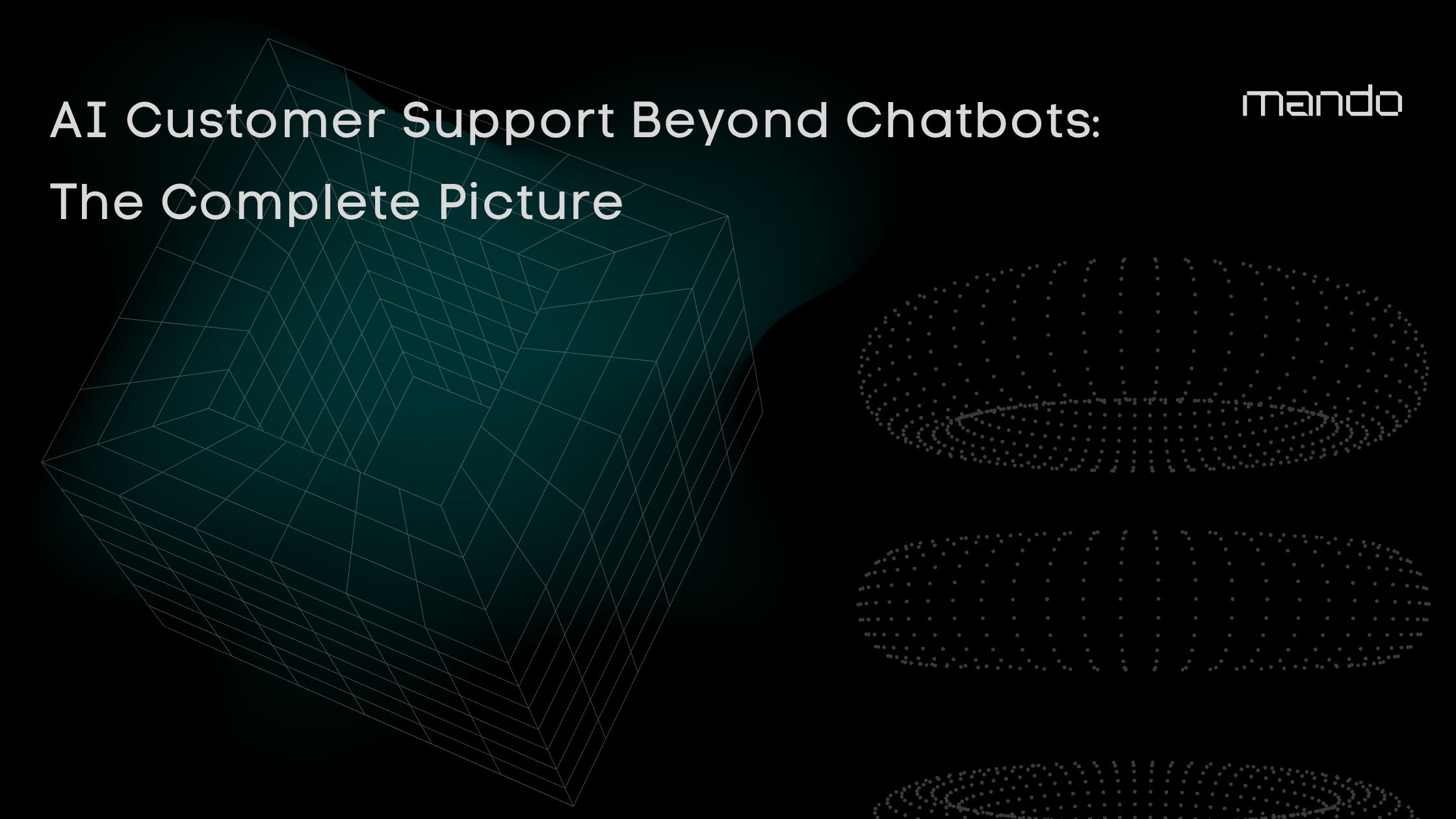Why AI Customer Support Isn't Just About Chatbots (And What You're Missing)
If you think AI customer support means adding a chatbot to your website, you're missing about 80% of what's actually useful. I know this because that's exactly what most business owners tell us when they first discover Mando. "Oh, we tried a chatbot once. Customers hated it." Right. That's because a chatbot isn't a complete solution. It's barely even the beginning.
The Chatbot Trap
Here's what happened to the AI customer service industry: chatbots became synonymous with AI support because they're visible. Customers see them. Competitors can demo them. They're easy to understand.
But they're also limited in ways that frustrate everyone involved.
A chatbot can answer FAQs. That's valuable. But what about:
Routing complex issues to the right team member?
Analysing which products generate the most support tickets?
Automating follow-up emails after ticket resolution?
Identifying customers at risk of churning based on support patterns?
Helping your human agents respond faster with suggested replies?
None of that is visible to customers. All of it is more valuable than FAQ automation. And absolutely none of it happens with a standalone chatbot.
What "All-in-One" Actually Means
When we say Mando is an all-in-one platform, we're not just listing features to sound impressive. We're describing a fundamentally different approach to AI support.
Chatbots handle: Customer-facing FAQ automation
All-in-one platforms handle: The entire support ecosystem
That means:
Workflow automation: Tickets automatically categorised, prioritised, and routed based on content, urgency, and team availability
Team collaboration: AI suggests responses to human agents, pulling from your knowledge base and past successful resolutions
Multi-channel support: Email, chat, social media, and phone integrated into one system (not just web chat)
Analytics: Real-time insights into response times, customer satisfaction, common issues, and team performance
Learning systems: The AI improves from every interaction across all channels, not just chatbot conversations
We believe the future isn't AI replacing humans. It's AI handling repetitive work whilst humans handle nuanced problems.
The Real Cost of Point Solutions
Most SMBs I talk to have assembled a Frankenstein stack of tools:
A chatbot for the website
A separate helpdesk for email tickets
Another tool for social media monitoring
Spreadsheets for analytics
Manual processes for everything else
Last month I spoke with a business owner running a 30-person company. She was paying for four different customer service tools, none of which talked to each other. Her team spent 90 minutes each morning just checking all the systems to make sure nothing fell through the cracks.
After switching to Mando, she told me the thing that surprised her most wasn't the AI capabilities. It was having everything in one place. "I can actually see what's happening across our entire support operation. Before, I was flying blind."
That integration is worth more than any individual feature. When everything connects, patterns emerge. You spot problems before they escalate. You understand your customers in ways that scattered data never reveals.
Why SMBs Need More Than Enterprise Hand-Me-Downs
Here's our controversial opinion: most "AI customer service solutions" are just enterprise tools with lower pricing for SMBs. They're not actually designed for small businesses.
Enterprise solutions assume:
You have a dedicated IT team for implementation
You can afford weeks of consultant-led setup
Your support team is large enough to specialise
You have data scientists to interpret analytics
You're comfortable with complex, feature-rich interfaces
None of that applies to a 20-person business where the owner also handles HR the support manager also does marketing, and "IT department" means whoever's best with computers.
In our view, businesses under 50 employees need tools built specifically for their reality: limited time, limited technical expertise, limited patience for tools that promise the world but require a PhD to operate.
That's not chatbot versus platform. That's understanding who you're actually building for.
Evaluating Your Options
If you're considering AI customer support beyond chatbots right now, ask these questions:
Does it integrate all my support channels, or just add one more silo?
Can I implement it this week without hiring a consultant?
Will it help my human agents work faster, or just deflect customers?
Can I see real analytics about what's working and what isn't?
Is it priced for my current size, or what I hope to become?
If you're getting "no" answers, you're looking at a chatbot disguised as a platform.
AI customer support is about more than customer-facing automation. The real value is in connecting your entire support ecosystem, giving your team better tools, and actually understanding what your customers need.
Chatbots are fine. They're just not enough.
If you're only shopping for a chatbot, you're asking the wrong question. Ask instead: how can AI help my whole team deliver better support? 💡
